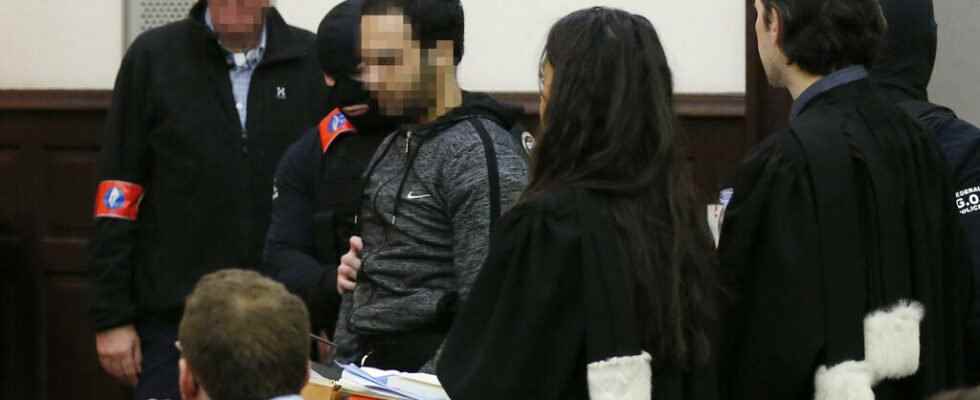The trial of the attacks of November 13, 2015 continues before the special assize court in Paris: 78th day of hearing Tuesday, February 8, 2022. The court was considering the case of Sofien Ayari. This Tunisian was arrested in Brussels at the same time as Salah Abdeslam, in March 2016. In Belgium, he was sentenced to 20 years in prison for shooting at the police three days before his arrest. Like the commandos of November 13, the jihadist had followed the route of migrants to reach the European continent. Record of hearing.
From our special correspondent,
The court provided him with an interpreter, but after hours of hearing during which Sofien Ayari responds carefully and in almost perfect French, he finally sits down. Gray sweater, short hair and full beard that protrudes from his mask, the Tunisian now 28 years old explains why he finally chose to come out of the silence in which he had locked himself up.
He evokes this mother of a victim who came to testify at the bar, who had expressed compassion. ” She looks a lot like my mother, he said. I believe she lost her daughter. She wanted to understand what had gone through our heads. It won’t make him his daughter, it won’t make her happy, but I figured I owed him that. And Sofien Ayari is working on it, revealing an intelligent, thoughtful character. He speaks of the Arab Spring, of this political consciousness which suddenly presents itself to the Tunisian youth of the middle class.
It recounts the feeling of identification with the Libyan neighbors, with the Egyptians, the Syrians, for whom the revolution has turned out badly. He evokes the red lines posed to Bachar al-Assad by Barack Obama, the absence of consequence when they are crossed. Sofien Ayari joins the Caliphate. ” And so you go to fight? asks the president. ” It was the only thing I could do at the time. These are the choices I made, it does not mean that they are the right ones. »
“The day I was offered a mission in Europe, I accepted”
In Syria, he follows military training, he participates in the fighting in the region of Homs and Palmyra. Seriously injured, he was hospitalized in Raqqa. He discovers another reality of the war: that of the bombardments which affect the populations. He recounts the anger and humiliation felt: ” I experienced this situation very badly. The day I was offered a mission elsewhere, in Europe, I accepted. An emotional decision, he says, but nobody forced me, you have to know how to assume “.
His cooperation will stop there, he will not say who, in Raqqa, recruited him. He also claims that he did not know when he left what this mission would consist of. But when a lawyer asks him if he doesn’t see the parallel between the innocent Syrian victims and those of November 13, he ends up saying: ” Yes, that’s what makes it possible to change your mind, not to take action. »
►To go further : All our articles on the trial of the November 13 attacks
